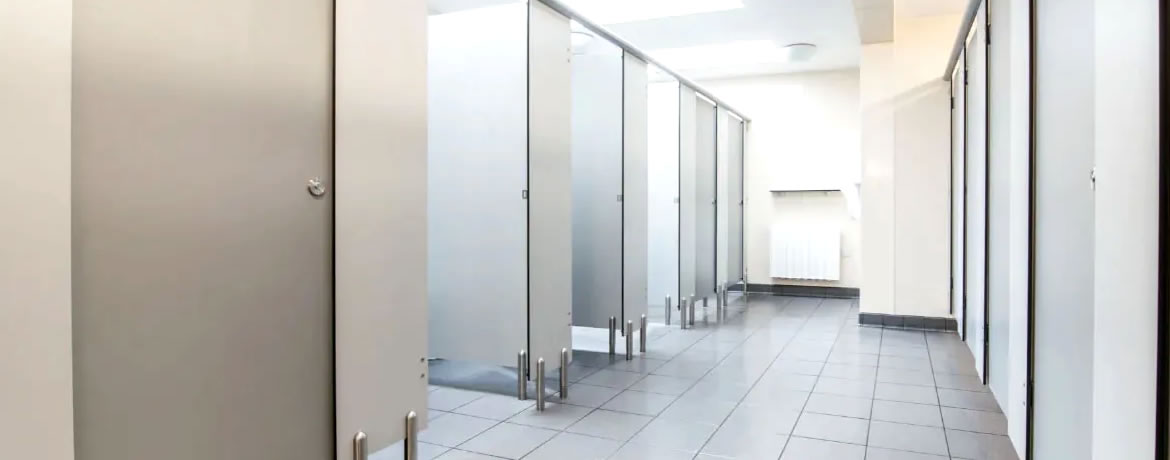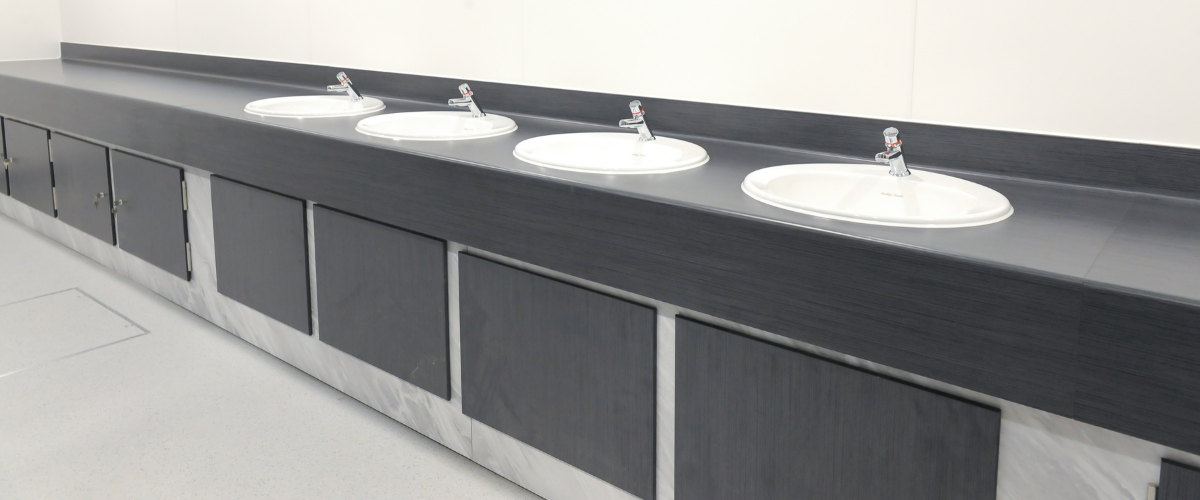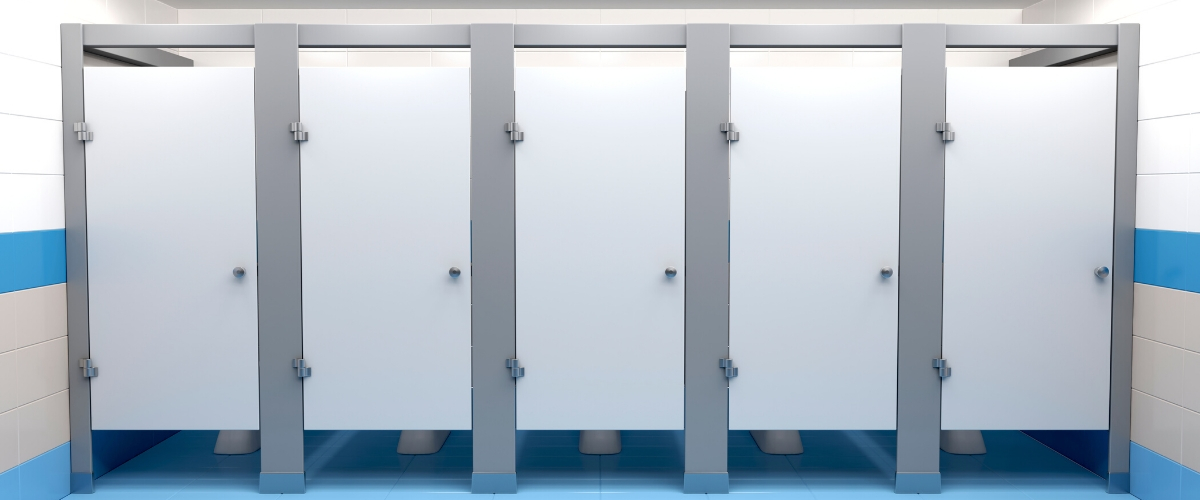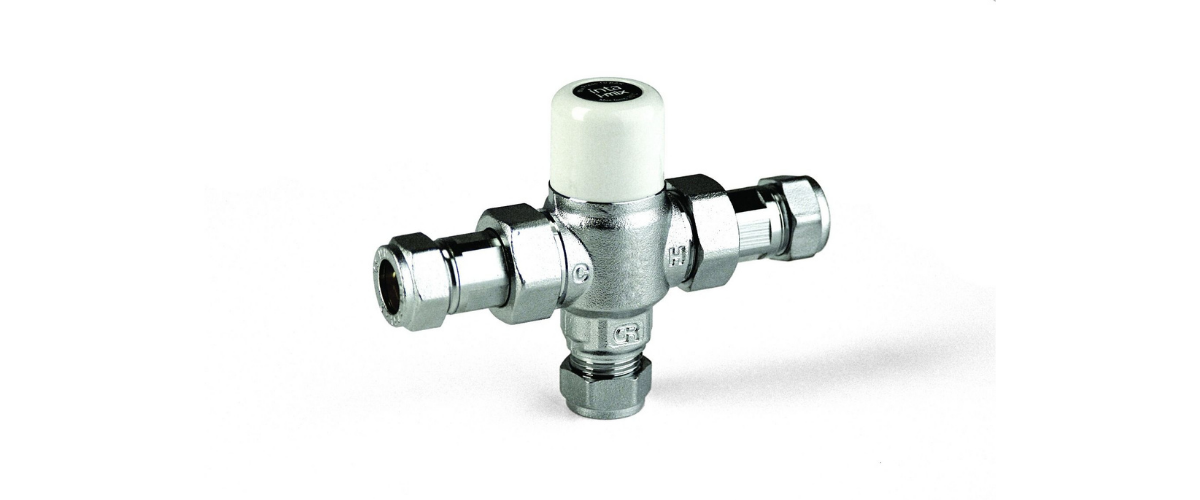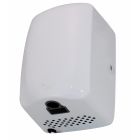Washroom decisions: Hand dryer or paper towels?
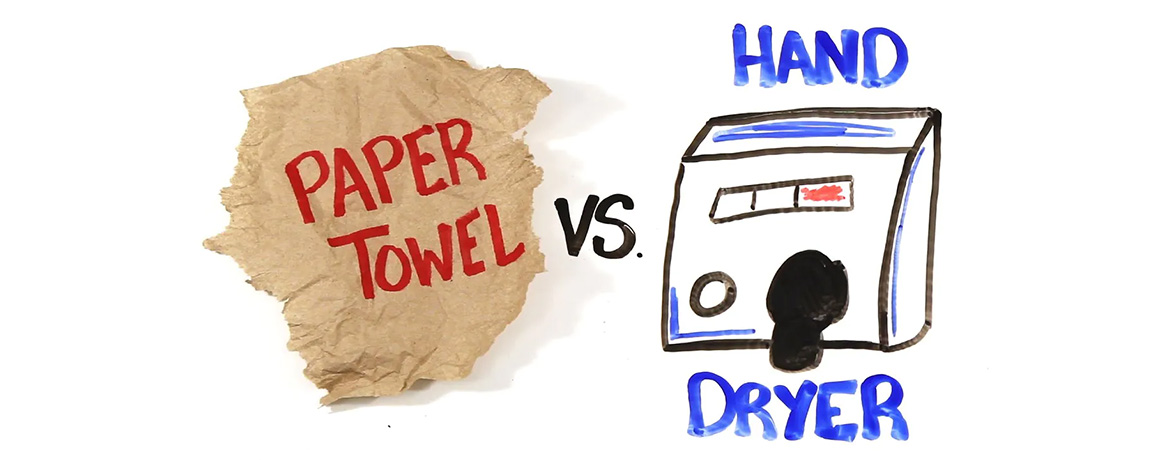
The familiar paper towel dispenser has been a mainstay of public and customer washrooms for decades. The electric hand dryer has also been installed abundantly and thanks to new technologies and carefully thought-out design, they now boast eco-credentials to boot. However, the discussion still reigns on which one is best; paper towels, or hand dryers?
The great thing about modern hand dryers
One of the best things about modern electric Hand Dryers is their efficiency at drying your hands. Remember when you’d stand at a hand dryer for five minutes drying your hands, only to wipe your palms down the sides of your trousers, and still walk away with clammy hands? Advancements in technology have resulted in models like the Dyson Airblade DB, and Biodrier Lite, which blast your hands with high-powered air stream blowing the moisture away in mere seconds.
While hand dryers do require mains electric to run, they give you the benefit of never having to replenish the paper towel dispenser or accommodate and empty a large waste bin.
Why hand dryer noise can be a problem
However, the noise from hand dryers can pose a problem in certain environments. The noise from hand dryers can be distressing for young children, those on the autistic spectrum and those that have mental and developmental needs. Our Biobot Hand Dryer is a popular choice in nurseries, preschools and children’s wards as it is designed to carry a face and look like a robot, but also has a much quieter motor so as not to cause undue distress. However, in many cases, the option of paper hand towels may be more preferable. Your site and users will need to be considered to determine the right option for your business.
Why paper towels are still the best-selling option today
But the humble paper hand towel should not be overlooked. Its efficiency at drying hands can’t be matched and the removable paper sheets allow users to dry forearms, elbows, faces or mop-up spills on clothes – options that aren’t available with some modern hand dryer designs.
Hygiene and the spread of bacteria
Talk of hygiene and the spread of bacteria between these two common hand drying options is fraught with controversy. High-powered hand dryers have felt the brunt of a recent study published in the Journal of Applied Microbiology, which says some high-powered hand dryer models can spread germs 1,300 times more than your traditional paper hand towel, and 60 times more than regular hand dryers. However, it’s worth considering contrasting factors such as thorough hand washing with antibacterial soap, as well as whether or not sensor taps have been used (when using traditional turn taps, the user has to touch the dirty taps after washing their hands clean. This is not necessary with a Sensor or Push Tap.
For washrooms with limited space
For washrooms with limited space, you could opt for the Dyson Airblade Tap, which sits above the sink and emits both water and warm air, providing you with an all in one fitting. The Dyson Airblade V hand dryer is a slimmer alternative to the one you dip your hands into and could prove useful in washrooms with limited or cramped space.
Which one is more environmentally friendly?
Now, this is another contentious issue and one that has many variables. While not easy to accurately measure, both electric hand dryers and paper towels can boast great eco-credentials. For example, you can buy hand towels made from recycled paper and most options will be fully biodegradable or compostable. However, there is an environmental impact on the production of recycled paper towels.
Meanwhile, electric hand dryers, once installed, need no replenishment and so the impact from the unit’s production is a one-time thing. While some models might be energy efficient, the electricity supply comes into question. Commercial green energy supply is certainly on the rise and this can make electric hand dryers, over the long term, a more environmentally friendly option, but only when combined with green energy supply.
The short answer: Both options have the potential to tick your ‘green’ boxes so this factor is perhaps not something to completely hinge your decision on.
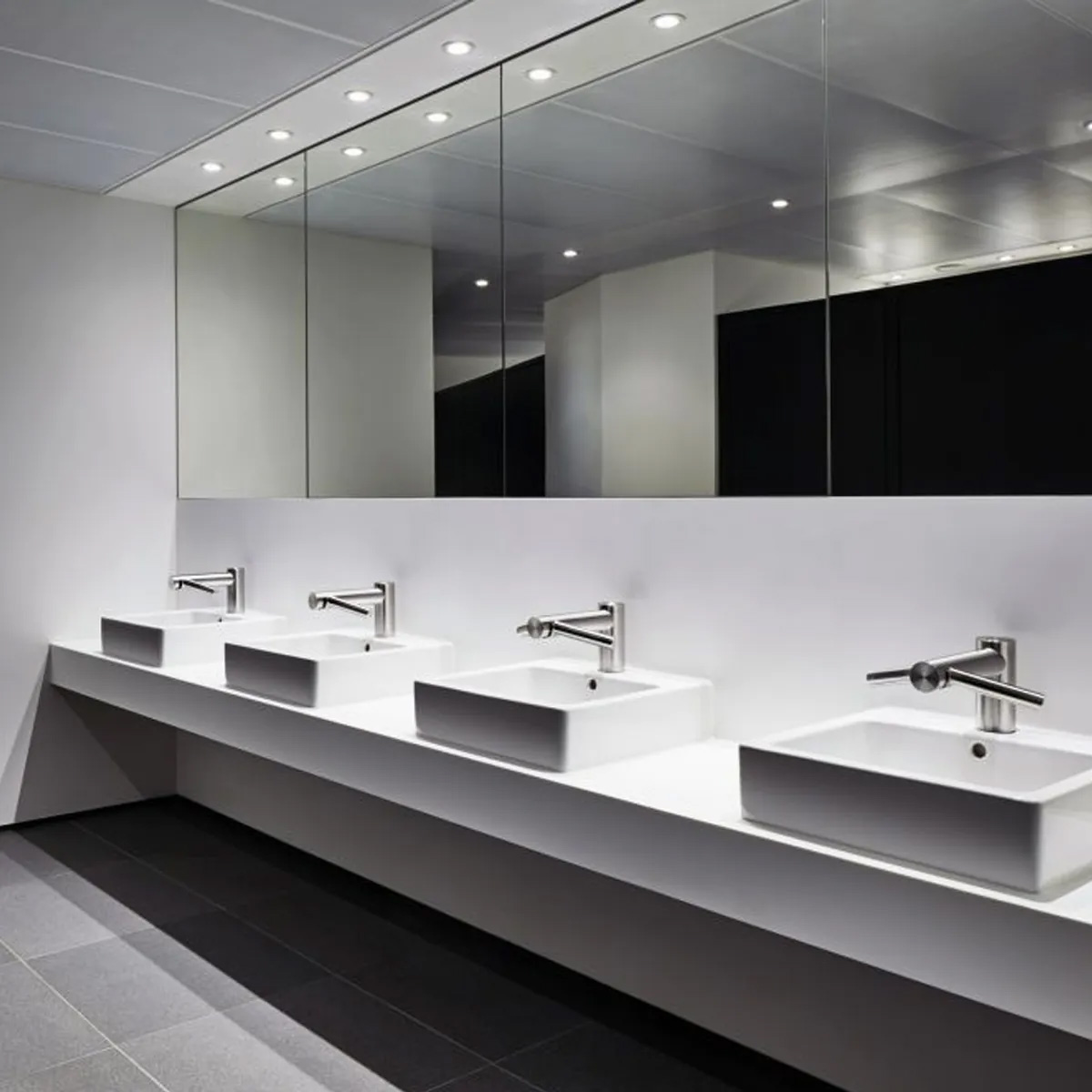

A case for using both
In high traffic washrooms such as motorway service stations, airports, train stations and event venues, clients often make the decision to go for both. This can help in two main ways. Users in a queue that might have rushed through the hand dryer, have the option to take a hand towel on exit – saving those wet palm prints on the trousers.
The second benefit is that you have another route to hand drying for users which can really help prevent congestion in the washroom. Hand towel dispensers can be located above or next to the Washbasins, while the electric hand dryers may very well be located on a different wall. If there is potential for a bottleneck at peak times in your washroom, then the decision to implement both hand drying options could be wise.
Remember, one size doesn’t always fit all
For a restaurant or brunch café, you might do better to go for paper or even washable hand towels, as this removes the annoying noise of the hand dryer frequently being used. Meanwhile, if you have a high traffic stadium, pub, or school washroom, perhaps the fast efficiency of a high-powered electric hand dryer might be more appropriate to deal with heavy footfall during peak times, half times, and lunch breaks.
If you're still undecided on whether you should install hand dryers or paper towel dispensers, or would like more help choosing an appropriate model, please get in touch on 01202 014872
Got a question? Get in touch.
MORE TO EXPLORE IN Related Posts

Dyson Airblade V Hand Dryer (White or Nickel)

C-Fold/Multifold Hand Towel Dispenser
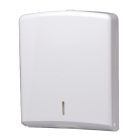
White ABS Plastic Multi-Purpose Hand Towel Dispenser


